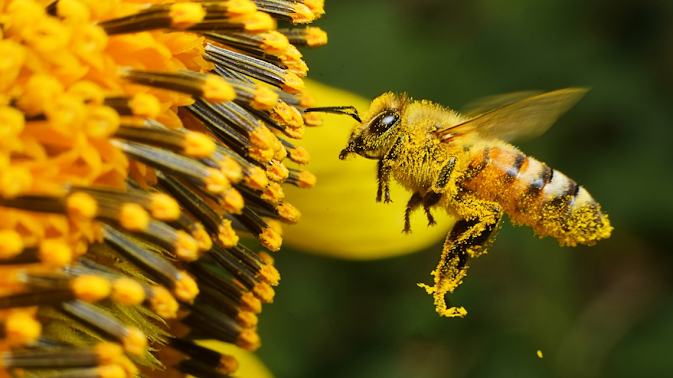Temperatures that remained above seasonal norms for a long time also disrupted the balance of bees. Deceived by the hot weather, the bees...
Temperatures that remained above seasonal norms for a long time also disrupted the balance of bees. Deceived by the hot weather, the bees left their hives with the urge to say "Spring has come". This situation causes them to get sick and to have premature offspring. Experts point out that there may be losses in the bee population and honey production will decrease.
The existence of bees in the world has meanings far beyond the production of honey that sweetens our mouth. Despite their small size, they have a great mission. By distributing pollen to flowers, they enable plants and trees to bear fruit and disperse their seeds, and they continue the oxygen cycle in the world. In other words, the saying "Without bees, there would be no life" is not actually a commonplace that is thrown around arbitrarily. The continuity of life depends on the existence of bees.
The mild start of the winter season and the fact that it continued this way for a long time also affected the balance in wildlife. Like many living things in nature, bees also suffered from this negative impact.

“The effect of false spring will be bad for bees”
Assoc. Dr. Merak Kekeçoğlu says that beekeepers have been in a rush in recent months. The most common question is "What will happen to the bees?" Will we be able to get the desired yield when we come to spring and summer? He states that he encounters questions. Frankly, this concern of beekeepers is justified. Because Kekeçoğlu is not hopeful about this season either. He states that the late arrival of winter will have a bad effect on bees. The first point he emphasizes here is the risk of disease…
Mentioning that diseases are rampant with the mild weather, Kekeçoğlu said, “Recently, 90 out of 100 people you meet are sick. We are faced with a microbial or viral epidemic floating around. "It's a natural change that affects these creatures," he says, and states that the same situation applies to bees:
“Changing weather conditions and high temperatures cause bee diseases and even the formation of new disease agents that we do not know about. In other words, the emergence of new bee diseases or bee pests directly affects bees. It causes serious losses in bees. Because the sick bee naturally becomes weak. If there is no food in the environment, and there is no food these days anyway. There was no honey last year. Therefore, our beekeepers have resorted to taking the majority of the honey and the honey stock in the hive is low. “Bees are directly affected by this.”

Bees' misconception that "Spring has come"
Assoc. Dr. Curiosity The second issue that emphasizes is that the bees are deceived by the false spring... states that the bees think that spring has come due to the high temperatures and explains that the biological clocks of the bees are confused:
“Bees normally have a biological clock. It goes to rest during the winter. When spring comes, it slowly comes to life, collects pollen from outside, begins to have offspring, and feeds its offspring with the pollen it brings. Now the bee has started to hatch. Bees, especially in hot regions, slowly started to collect pollen. Because their biological clocks went wrong with the thought that spring had come, they started having babies. We can see both indoor and outdoor cubs locally. If serious winter conditions occur after this, then it really poses a serious danger for bees. "This means serious alarm bells will ring."
So what danger do bees face?
“If winter conditions are severe, bees will not be able to go out and bring food or feed their young. Then too there will be serious deaths. The cub will be dead before it becomes a teenager. This already means a weak and inefficient colony entering spring. So the colony will remain weak. Under normal circumstances, we expect the population in the hive to increase in the spring. However, due to these losses, there will not be enough young bees to collect nectar inside and there will be no honey, so it will be a bad season.”

If the bee population decreases, honey production will also decrease
Disease and early abortion... The decrease in the population as a result of these two risks faced by bees are important factors that will directly affect honey production.
Kekeçoğlu is of the opinion that this situation will have a negative impact on honey production. He states that they are experiencing this problem in 2021. “When the honey crop decreased, prices skyrocketed. For example, chestnut honey, which was previously bought for 200-250 TL, can now be bought for 600-700 TL.” says. He states that, in line with the current situation, honey prices are likely to increase further next year.










No comments